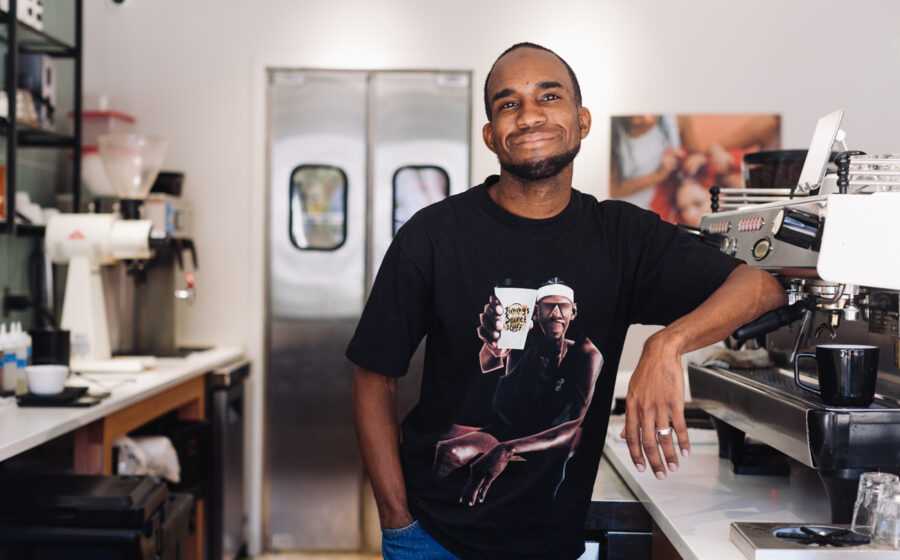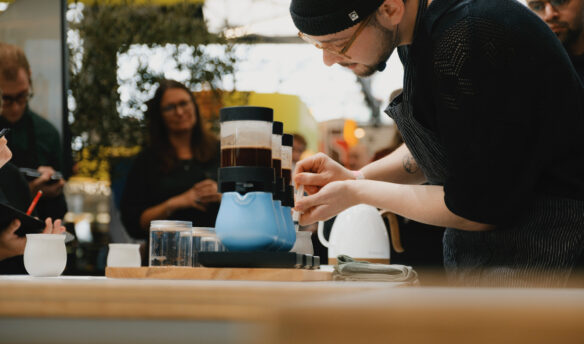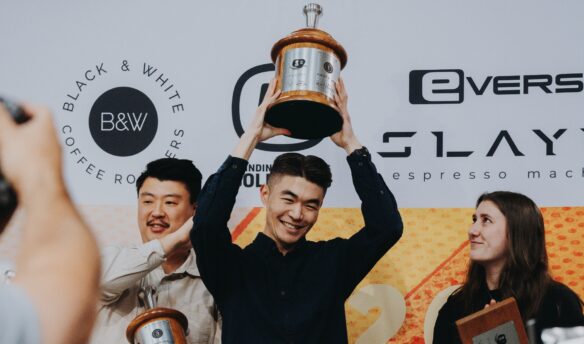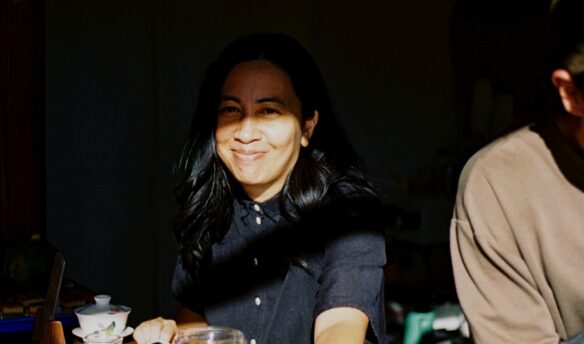Aaron Fender began his barista journey in 2012, but a visit to a coffee farm in Rwanda in 2016 transformed and shaped his ideas around coffee.
“It was during those couple weeks in Rwanda that I realized that it was everyone but Black folks – the actual farmers/producers – who were really profiting off of coffee,” Fender told “Journal of Vices” in an interview. “They’d basically been cropped out. Portrait started out of a burden to include those Black & Brown folks back into the picture frame.”
So, in 2019, Fender, along with co-founders Marcus Hollinger and John Onwuchekwahe, began Portrait Coffee, seeking to “pour a new narrative” (which has become the brand’s motto). Fender and his team sought to create a space that better represents and honors the work of African coffee farmers and creates job opportunities for Black and Brown people. They set up Portrait in the historic West End neighborhood of Atlanta, Georgia, and in August of 2023, they opened their first retail location in the Lottie Watkins Building, named after Atlanta’s first Black real estate agent.
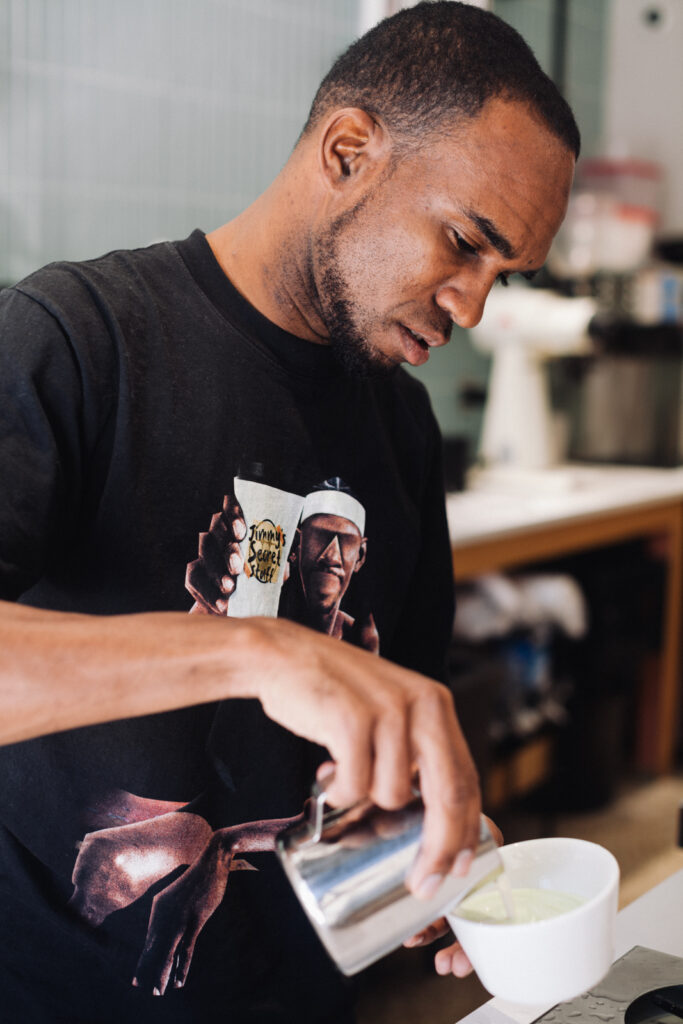
Fender has always been looking for ways to build community beyond the walls of a cafe. Before opening a brick-and-mortar space, Portrait began its life as a small roastery, firing up in early 2020 just as the COVID-19 pandemic shut down gathering spaces, including coffee shops. That didn’t stop Fender from seeking new ways to connect with customers, including a door-to-door coffee delivery service and extending hospitality and care to consumers through digital channels. Now, Fender reflects on a new chapter of Portrait’s journey and how building community has always been the cornerstone of the brand’s identity.
This interview has been lightly edited and condensed for clarity.
Fresh Cup: What did Portrait look like in the early days?
Aaron: We first started roasting in early 2020—that’s when we signed the lease for the building we’re currently in. Initially, we rented time and roasted on a machine at a Peet’s Coffee location in our neighborhood, and it wasn’t until the second half of 2020 that we started building our own roaster, which was completed in January 2021. We started doing everything in our own space in 2021, but for most of 2020, we roasted at Peet’s and then packed and shipped in the building where our cafe is now.
You started Portrait as a roastery—how did you think about building community without a brick-and-mortar space?
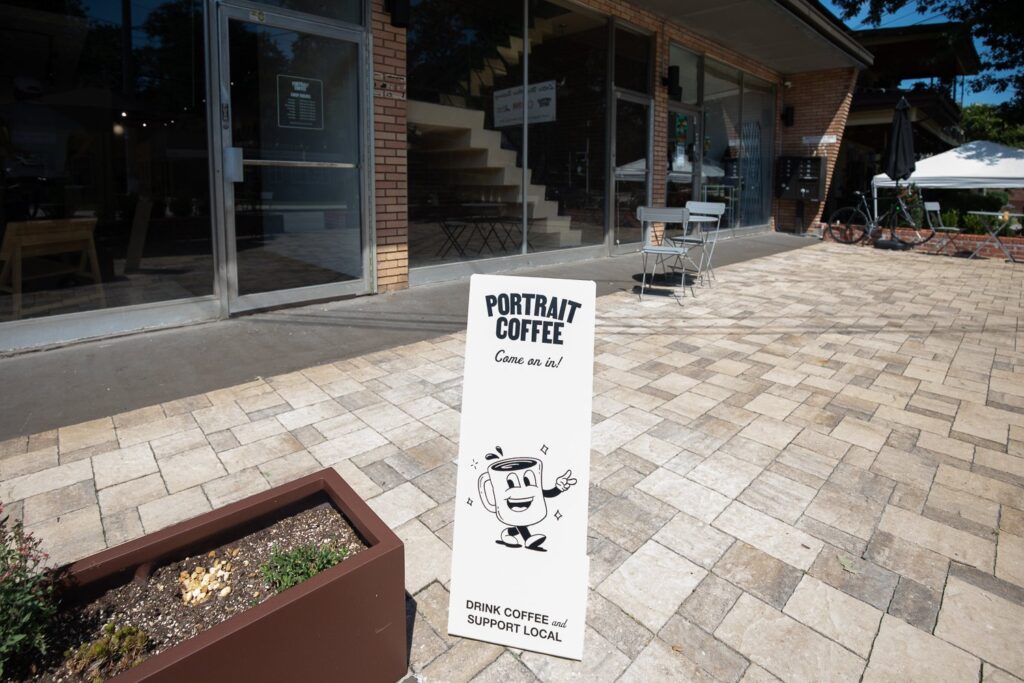
As early as April 2020, we launched our coffee club (Portrait’s monthly subscription service). We were offering door-to-door delivery for folks in Atlanta. I would literally roast the coffee on Monday or Tuesday and then deliver it to our neighbors the following day or later that week. That was really cool—some of our regular customers at our cafe now were people I was delivering coffee to. It’s funny when you see the ads that say, “Fresh coffee delivered right to your doorstep!” I was literally doing that.
How did you continue to build community during the early days of Portrait?
We began roasting during the early days of the pandemic. Something one of our team members coined was the term “digital hospitality.” What does it look like to show up for people even though we can’t interact with them as much as we want to? That opened the door for us to be creative and imagine what hospitality might look like [digitally] and be intentional about the details of the customer experience. Whether that was responding to a social post, or making sure that when we did have a popup or in-person experience, our commitment to hospitality matched the energy we communicated online and in person.
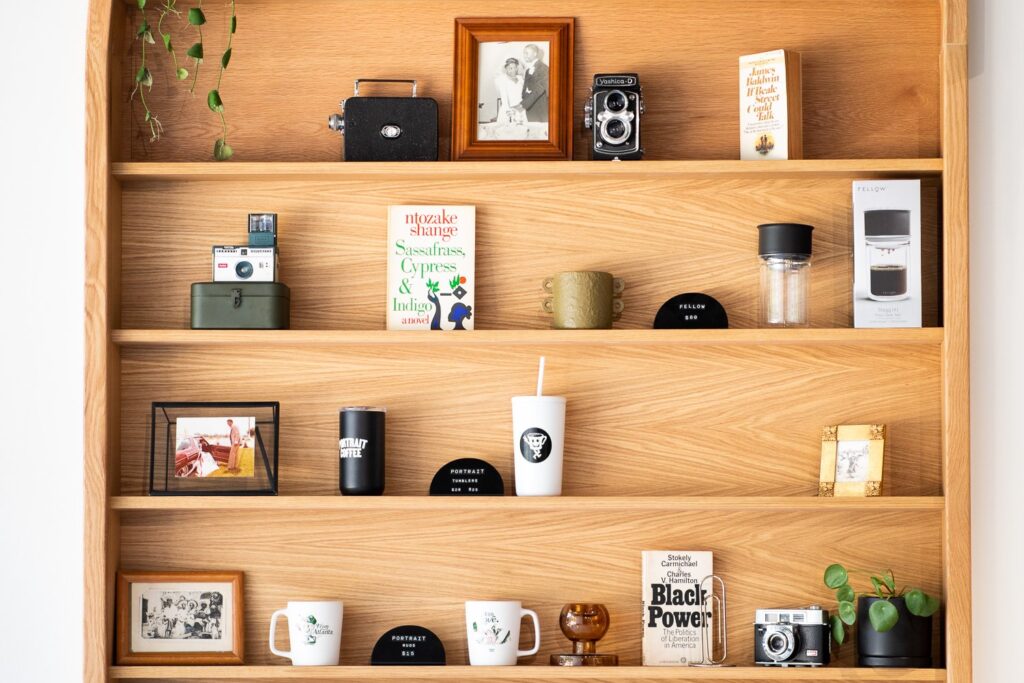
One of our core values is genuine hospitality. We want to be our authentic selves in how we care for people. For our cafe, that starts with making sure espresso is dialed in, customers are happy with their drinks, or if that drink needs to be adjusted—those are all the little details we try to stay on top of. We want to make sure people leave happy.
Every month, you host an event called Saturday School. Can you explain what that is?
A lot of our hope with Saturday School is to make coffee accessible to folks in our community. I was talking with a friend the other day, and he didn’t fully understand what espresso was. You might laugh and think, “How do you not know that?” but if you take two steps back and consider what espresso is, that’s actually a complicated concept.
I think we take a lot of coffee culture for granted. I don’t think we take the time to walk with people. “How dare you not know what a cortado is!” or the endless debate about the difference between a flat white and a cappuccino—I think a lot of the time, we’re just talking to ourselves. And Saturday School is about removing all the foolishness and breaking concepts down like we’re talking to fifth graders.
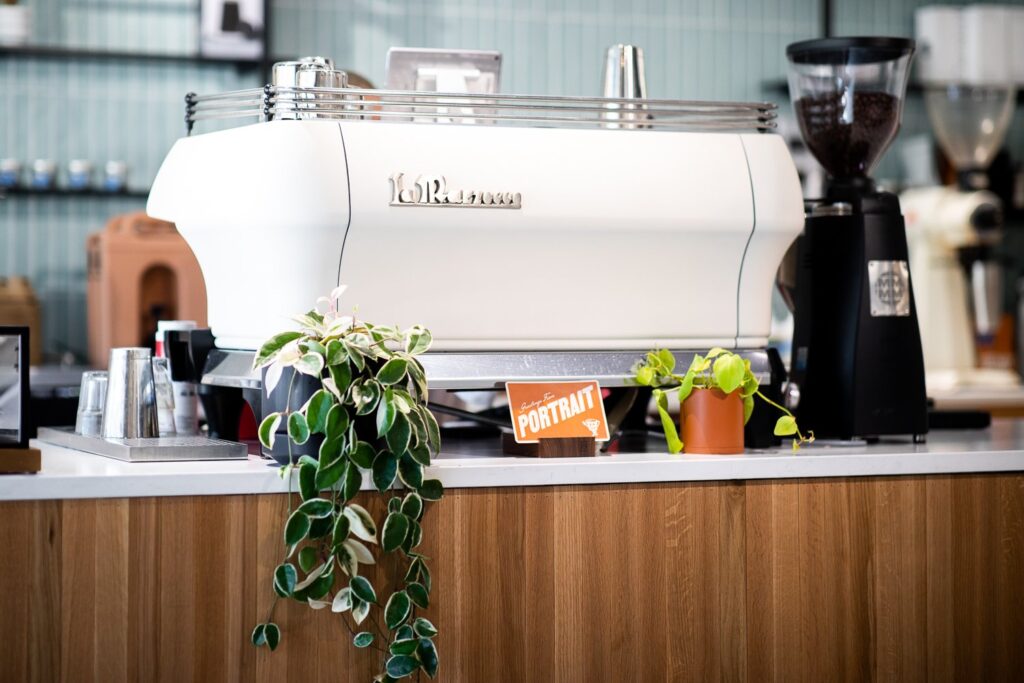
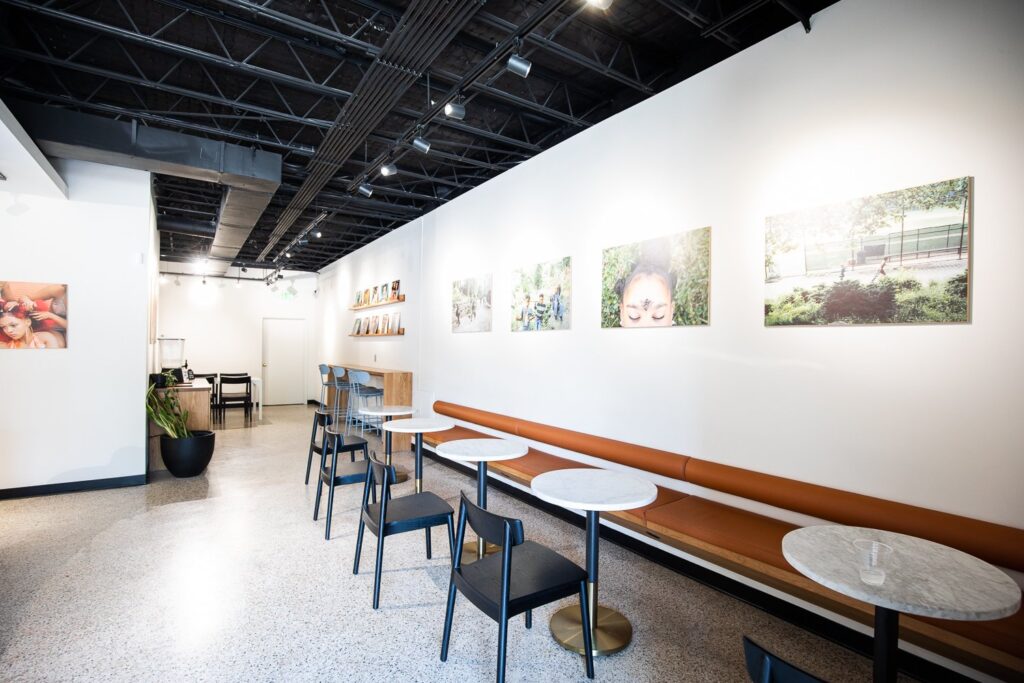
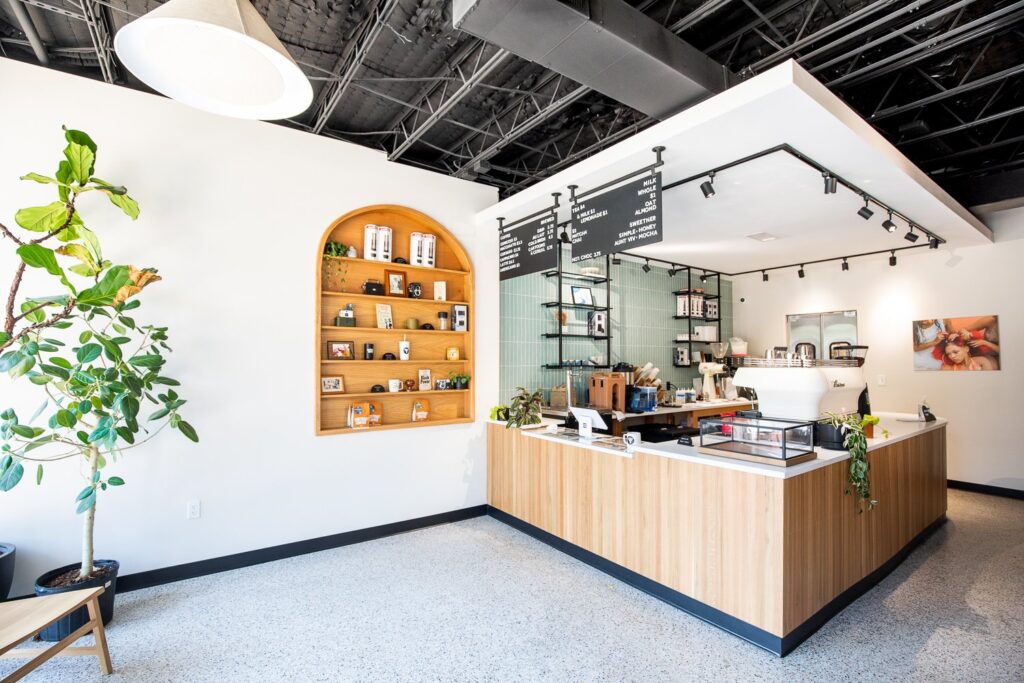
Explaining coffee to people without being condescending is clearly important—how did you think about that in terms of hiring? What were you looking for when staffing your cafe?
As our leadership team began to hire, we said, “Let’s hire for soft skills; let’s hire for hospitality and customer service experience; let’s hire people that seem willing to learn and are adaptable. Let’s make sure and not hire for coffee skills.”
We did make sure to hire a few people with basic coffee knowledge, but at the end of the day, I firmly believe you can teach someone how to pull a good shot, but you can’t teach someone to be kind. You can’t teach someone how to listen well, and you can’t teach all of the traits that come with genuine hospitality. I think people are willing to be patient with a new barista who might not know all the coffee slang, but I don’t think people will show patience for someone who is rude or unkind to them while they’re ringing them up behind the register.
Your store manager, Charla Dennings, came from Starbucks. How has she influenced or impacted the cafe as you opened your doors?
A lot of times we don’t give these larger organizations credit where it’s due—specifically I’m talking about structure and accountability.
Those were all things Charla brought to the team. She was a huge advocate for implementing human resources, having real transparent avenues for baristas to speak and have their voices heard, and making sure leaders like myself are held to the same standards as everyone else. There are a lot of little things that we did on the front end that allowed us to grow comfortably and sustainably because of the systems she brought in.
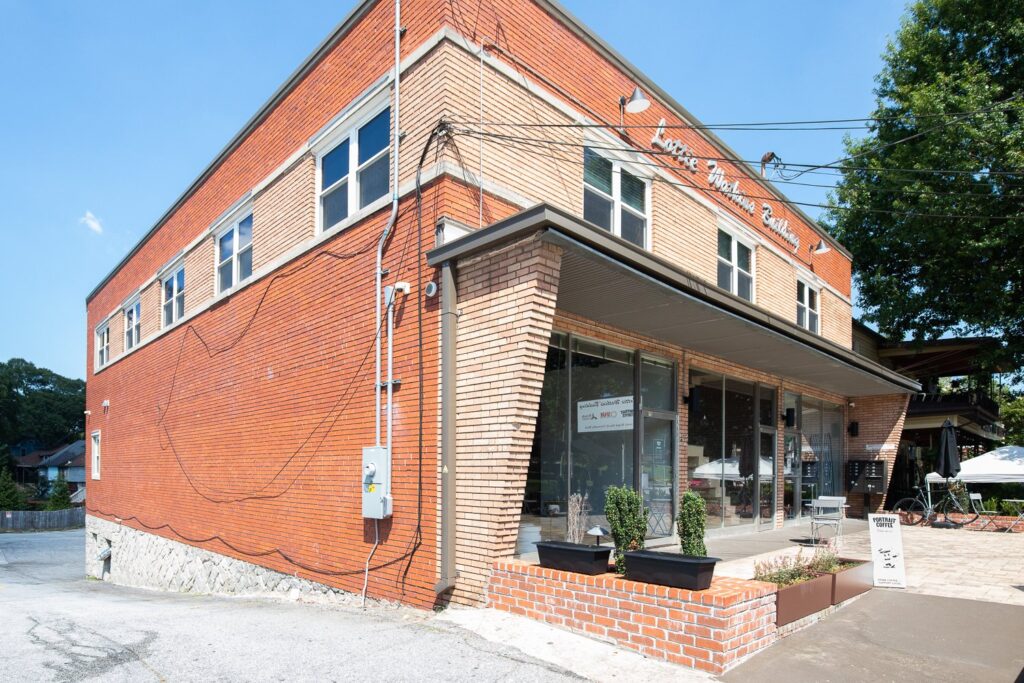
What kinds of systems?
We have a daily communication log where employees can, throughout their shift, jot down what’s working, what’s not working, what big wins they’ve achieved, if there are any pain points…
Charla also holds a cafe leadership meeting with her team every week to do a pulse check. One of the first things she did with the baristas when she hired them was implement 30, 60, and 90-day check-ins with every member of her team to make sure she’s listening to staff and being receptive to their feedback.
She and I have a weekly meeting—we’ve already been able to make changes based on things identified by staff, like if certain tools are needed on the floor, the length of shifts, or requests for additional training. That all came from feedback Charla received that we were able to implement.
It’s interesting and challenging because we’re only several weeks old. It’s kind of like we’re driving a car 200 miles an hour down the road and trying to change the tires while driving it. It can feel challenging, but I’m really proud of the team we have.
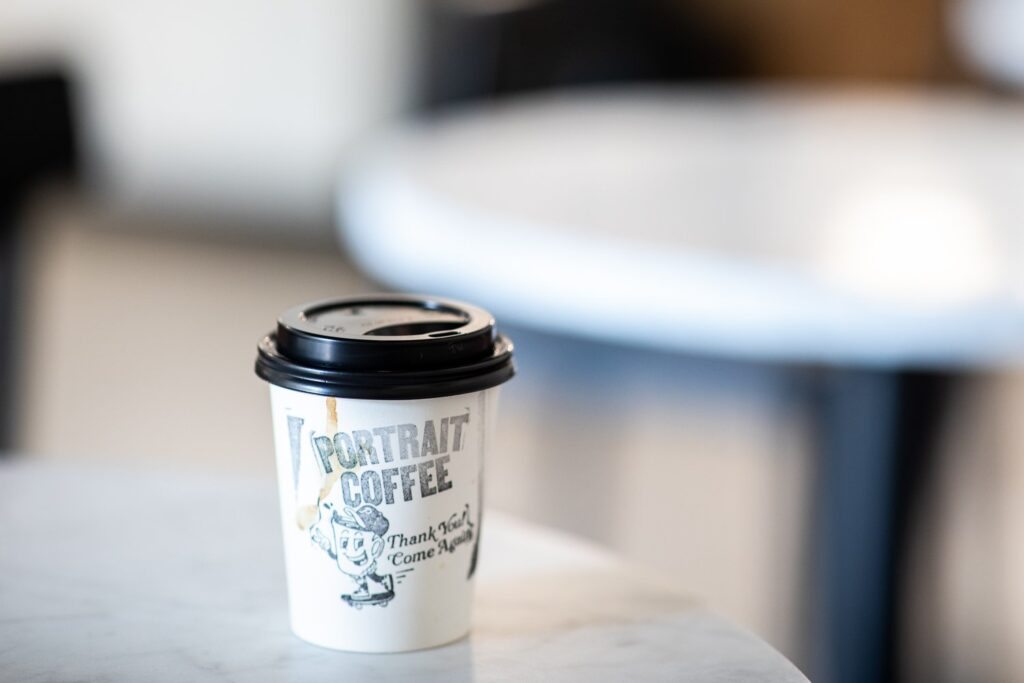
What insights or advice do you have for shop owners looking to build community?
Be accessible and available and figure out what that means for your business. Our team at Portrait has been fortunate enough to have lived in the community for a few years, and we have those natural and organic relationships. It helps that our community was incredibly supportive before we opened, as we were doing events.
A real question to ask yourself, whether you’re a coffee shop, a print shop, or a flower shop, is, “Am I adding real value to my community?” and then assess what that looks like for you. For me, and this is a huge part of Portrait’s mission, I wanted to create genuine life opportunities for brown and Black folks in coffee. That’s my why—that’s why I’m at Portrait.
Photos of Aaron by Erin Fender. Cafe photos by Atlanta Coffee Shops. This interview has been lightly edited for clarity.



